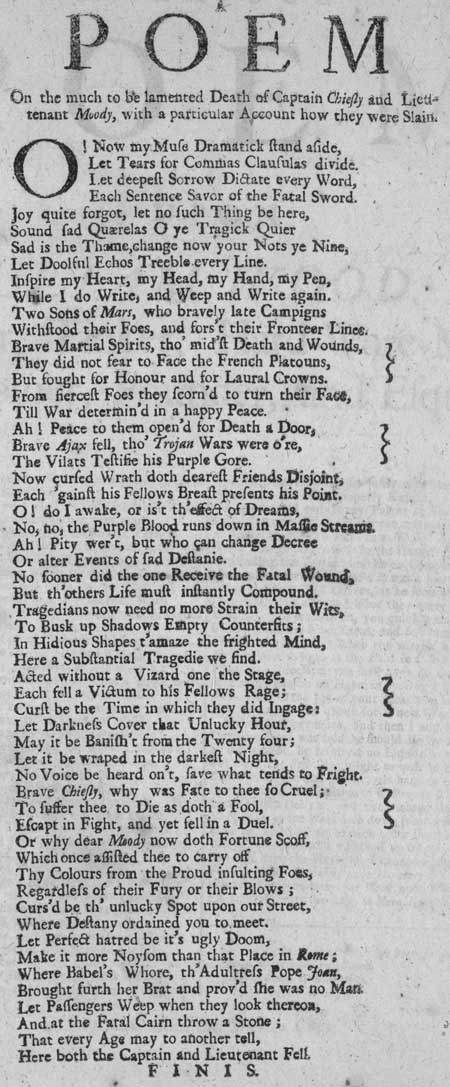Commentary
This poem begins: 'O! Now my Muse Dramatick Stand Aside, / Let Tears for Commas Clausulas divide. / Let deepest Sorrow Dictate every Word, / Each Sentence Savor of the Fatal Sword. / Joy quite forgot, let no such Thing be here, / Sound sad Quaerelas O ye Tragick Quier. / Sad is the Thame, change now your Nots ye Nine, / Let Doolful Echos Treeble every Line.' Through employing epic similes from classical mythology, this melancholic poem commemorates in lofty style the bravery of two soldiers. Frustratingly, the broadside offers little information regarding the identities of these men or the situation that caused their deaths, so it is difficult to place the poem in its proper historical context. However, the reference near the end of the poem to a 'brat' being born in Rome is quite likely a reference to the birth of Charles Edward Stuart, or 'Bonnie Prince Charlie' (1720-88). The mention of fighting 'upon our Street' and the 'cairn' which marks the spot where both men fell, also suggests that this is a song lamenting the soldiers who died during this bloody civil war. Broadsides are single sheets of paper, printed on one side, to be read unfolded. They carried public information such as proclamations as well as ballads and news of the day. Cheaply available, they were sold on the streets by pedlars and chapmen. Broadsides offer a valuable insight into many aspects of the society they were published in, and the National Library of Scotland holds over 250,000 of them.
View Transcription | Download PDF Facsimile
|
 |
Probable date published:
1720 shelfmark: Ry.III.c.36(148)
 View larger image
View larger image
|


